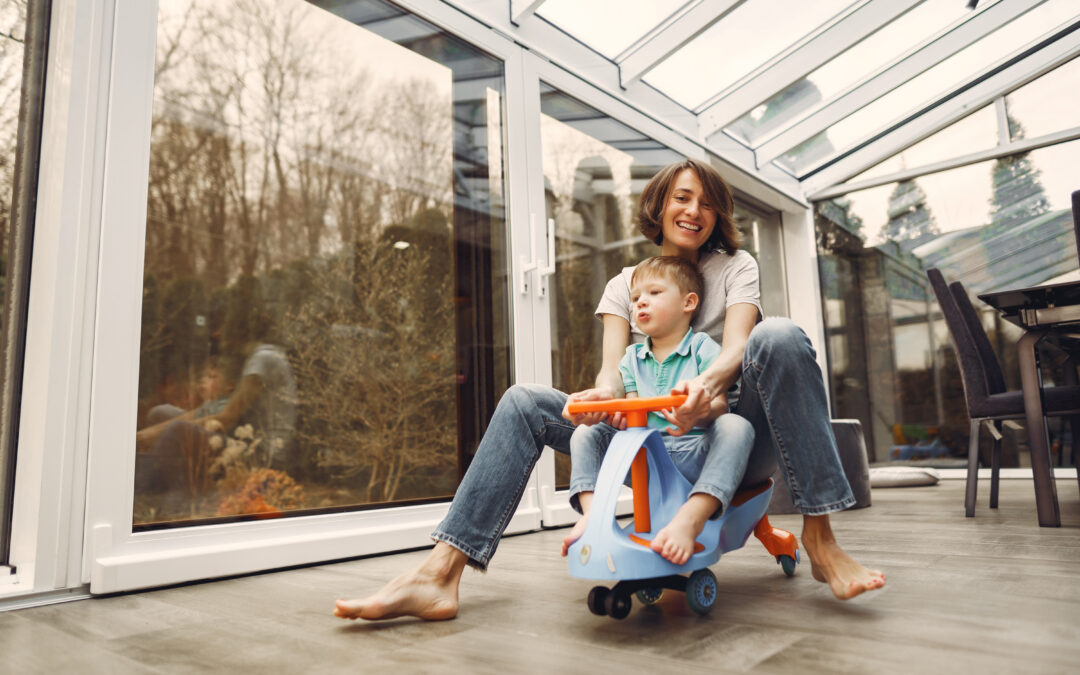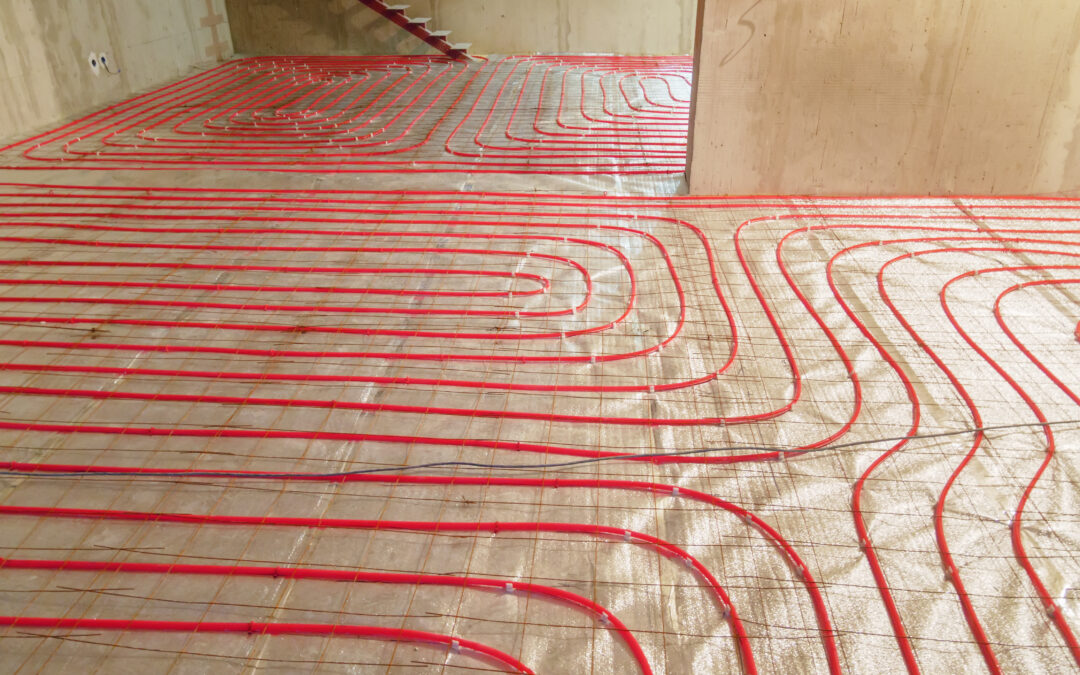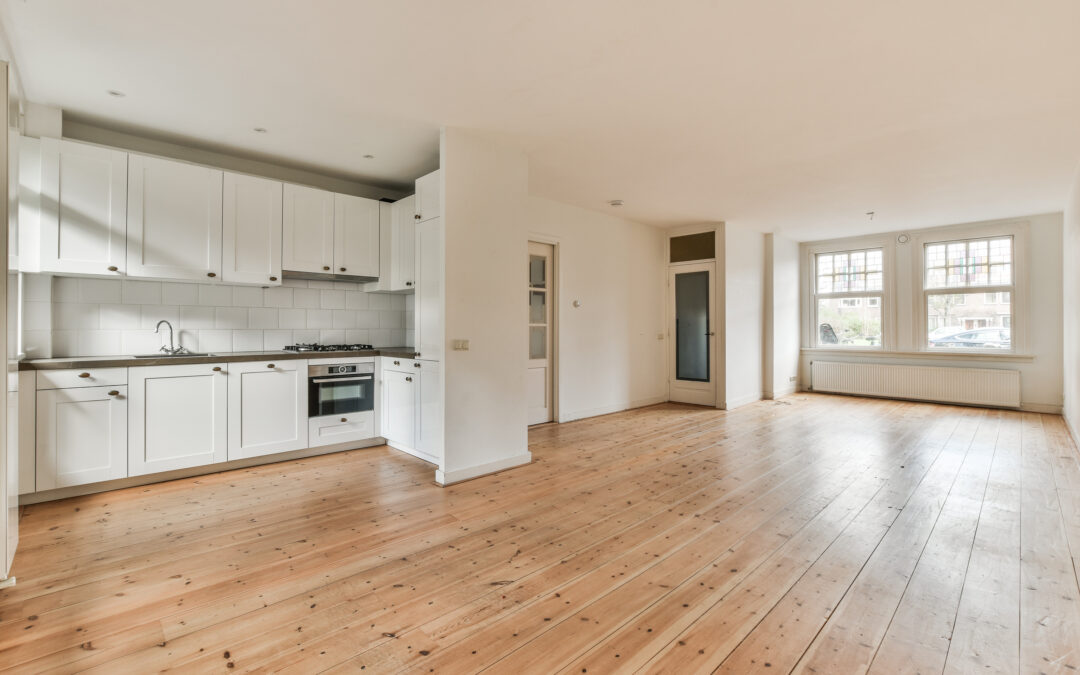Choosing the right flooring for your home is a challenging task; there’s no getting around it. You may also find the process more difficult if you’re trying to choose between hardwood or LVP flooring.
Hardwood flooring is a timeless classic that never goes out of style, while LVP is increasing in popularity. But which one is best for your room?
We’ve gathered information about the biggest differences between LVP and hardwood floorings and what we believe is the best choice and why. Let’s get started!
The Major Differences Between LVP and Hardwood Flooring
Here, you’ll learn about the major differences between hardwood and LVP flooring, including pricing, durability, installation, maintenance, and more!
1. Material Composition
Hardwood flooring is made from solid wood and is usually made from harvested oak, maple, or hickory trees. After it’s been harvested, the wood is cut into planks and processed to create the final flooring product.
On the other hand, LVP (luxury vinyl planks) is made from synthetic materials, including PVC (polyvinyl chloride) and other additives.
Hardwood and LVP have quite different manufacturing processes, too. Hardwood planks are made by sawing the solid wood into thin pieces and finishing them to create stunning textures and colours. LVP flooring is made through a process called photogravure. This process involves printing realistic images and textures onto the surface of the vinyl planks.
Both types of flooring have unique characteristics and benefits. On the one hand, hardwood offers a natural, timeless look, and LVP flooring provides durability and tends to be more affordable.
You may want to consider LVP flooring if you love the look of hardwood but have a small budget.
2. Installation Method
Between hardwood and LVP, the last one is much easier to install. With LVP, you don’t need special tools or skills to lay the planks. Moreover, the planks are easy to cut to size with a utility knife or a pair of scissors.
Another benefit of LVP is that this is a floating floor. That means the flooring doesn’t require glue, nails, or staples to keep it in place. The planks are laid down and clicked together, held in place by their own weight. That makes installation fast and easy. LVP can also be installed on top of existing floors. You save money and time with this installation method.
On the other hand, hardwood flooring requires special tools and skills to install it correctly. The planks also require glue or nails to keep the hardwood planks attached to the subfloor. And if the subfloor is not completely level, you’ll find it hard and time-consuming to install the hardwood flooring.
If you’re looking for an easy installation process that doesn’t take as much time as hardwood, consider buying LVP. LVP is the most hassle-free flooring around when it comes to installation.
3. Price
When it comes to price, LVP tends to be the cheaper option. Consider that installing this flooring is pretty fast and easy, along with its other benefits. When you consider everything together, LVP is a cost-effective flooring solution, compared to hardwood.
What makes hardwood flooring so expensive? Hardwood flooring comes from live trees that must be harvested and processed into flooring. This takes time, energy, and more. In addition, hardwood flooring requires more maintenance, such as regular refinishing to maintain its appearance. These factors combine together to make hardwood flooring more expensive than LVP.
If you’re looking for practical, affordable flooring, we highly recommend LVP. You’ll be much happier with this flooring.
4. Durability
LVP is known for its strength and durability. The flooring is made of several layers of vinyl material that can put up with heavy foot traffic, scratches, water spills, and more. In addition, LVP has a wear layer that’s designed to resist stains, fading, and surface scratches.
On the other hand, hardwood flooring is made of real wood that is prone to scratches, scuffs, and dents.
Between hardwood flooring and LVP, LVP wins again for its durability. This is an excellent choice for families that have kids and pets, high-traffic areas, and more. LVP is more durable than hardwood and it takes less maintenance to keep it looking beautiful for years.
5. Water Resistance
LVP is designed to be water-resistant, making this a great choice for water-prone areas such as basements, kitchens, bathrooms, and laundry rooms.
On the other hand, hardwood flooring is not water-resistant and can be severely damaged by excess moisture or water. This type of flooring is not a good choice for the rooms or spaces mentioned above.
If you need water-resistant flooring, LVP is the better choice in this case.
6. Maintenance
LVP flooring is made from synthetic materials, which are more durable and easy to clean. The flooring can easily be cleaned with a mild cleaning solution and a damp mop once the surface dirt and debris have been removed. In addition, the flooring’s water-resistant feature means it’s also a great choice for places that are prone to spills and moisture.
On the other hand, hardwood is made from living trees, and an extensive manufacturing process is required to make this into flooring. Once the hardwood flooring has been installed, it requires frequent maintenance to prevent scratches, stains, and other damage.
When it comes to maintaining a floor with ease, LVP makes the best choice. The flooring can be used almost anywhere in the home, it’s affordable, water-resistant, and affordable. We highly recommend this flooring for busy households and high traffic areas.
7. Comfort
LVP is generally more soft underfoot, making this a comfortable flooring to walk on. It’s also more sound-absorbing, which may be necessary in a busy household that has pets and kids.
On the other hand, hardwood flooring is hard! That’s not a surprise!
If you’re looking for a comfortable floor and you spend a lot of time standing or walking on the floor, you may want to consider LVP or hardwood flooring.
8. Appearance & Customization
LVP flooring offers many high-quality looks that mimic the look and feel of hardwood. The flooring is available in a wide range of styles, colours, and finishes, making it easy to find LVP that fits your room’s style.
Hardwood flooring is limited by the natural variations of the wood it’s made from. While this is beautiful, hardwood flooring may not be optimal in certain circumstances. For instance, it’s not recommended to use hardwood flooring in areas that are frequently wet or experience spills, high-traffic areas, and more.
9. Lifespan
Hardwood flooring is more susceptible to scratches, water damage, stains, and more. On the other hand, LVP is made to be more durable and long-lived. In fact, LVP flooring can last for decades, whereas hardwood floors can also last that long (or longer), but they require more maintenance and care over that same amount of time than LVP flooring.
If you need a floor to last years and stay beautiful, choose LVP over hardwood flooring.
Summing It Up
There you have it! LVP is a highly popular flooring because of its ease of installation, maintenance & care, durability, and beauty. While hardwood floors can last for hundreds of years, they require much more care than LVP.
LVP offers many more benefits than hardwood floors, and it’s a cost-effective solution that offers more design versatility.



